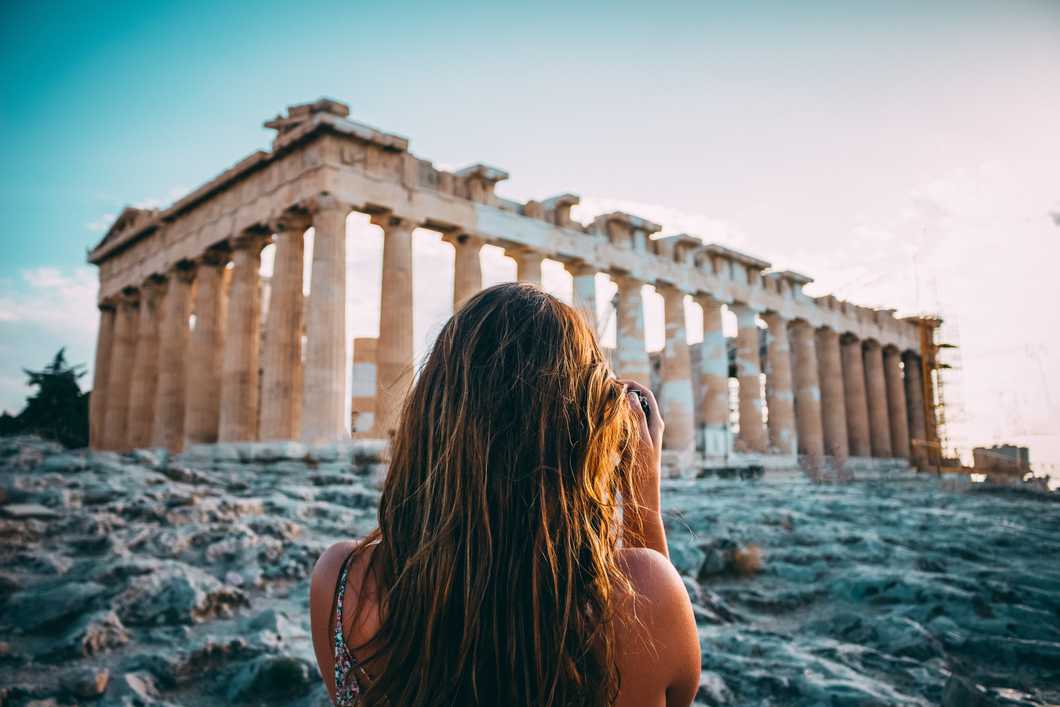It was 101 degrees Fahrenheit outside. I spent my final day walking around Athens alone, visiting the Byzantine and Christian Museum and various ruins such as Aristotle's Lyceum (where the Peripatetic School was founded in 335 BC).
This was my first time visiting Greece, and visiting Athens felt particularly 'weighty.' Here, so the story goes, emerged a plethora of Western foundational values including individualism, democracy, and served as a launchpad for early Christian life as well. In some ways, I felt I had to "experience something special" or receive a near-spiritual moment walking in the footsteps of Paul, Socrates, and Plato.
But why Greece? Why, of all the places in the world, did this area scattered in the Mediterranean sea, birth such revolutionary ideas about politics, philosophy, and people? This was a question I sought answers for.
A shock came to me when I realized what bad shape the city of Athens was in currently. Graffiti sprawled the insides and outsides of the subways, homeless children glued themselves to ATM machines hoping for single coins to spill out, the streets smelled, and the Marina looked as if it had just come through an apocalypse. In some ways, Greece certainly had just gone through once since it's financial collapse.
Maybe I was surprised because I had this glamorized idea of what would await me in Athens. I expected ruins built thousands of years ago, but I didn't expect the ruins from a decade ago. It hardly felt like an inspiring place in its present state — indeed not a place where one could visualize democracy emerging from.
Though wealth had a part in the Athenian polis (a type of unique Greek city-state), this cannot solely explain what birthed such a fresh take on political life through the lens of people — what we could call individualism today.
In reading The Greeks by H. D. F. Kitto, I was surprised to learn that, for the most part, Greek spiritual life was not dictated by polytheism as we understand it today. Just like we can look at the Hebrew people and say "their god" was Yahweh, Athens had a god named Athena, as Delphi had Apollo.
The existence of a polis god was not a denial of another polis god, but also not reverence. There was a general understanding that many gods (or valuation of gods) could exist, just as the Bible acknowledges other 'gods' from neighboring regions (some count up the 35 mentioned including Baal-Peor, Sikkuth, and Ishtar).
Greece was a land of many poleis (plural of the polis), each with their own understanding of the divine, which they shared with one another. Over time, this "globalization" within Greece converted Greece to a more religiously tolerant location. Poleis had to continually reflect on their own views of the divine with their neighbors, often incorporating these different understandings, rituals, and theories into a larger tapestry of viewing existence that also interacted with emerging philosophical and political thought.
This theme repeated itself during my stay in Athens. It all tied together for me on the roof of a red bus, staring out at the daunting Acropolis, the home of the Pantheon and democratic exercise. An audio guide explains, "The geography — this is what allowed Greece to emerge in such profound areas. At the crossroads of different faiths, different trade routes, different people with different skin colors, the people of Greece, and Athens in particular, were forced to face stark differences all around them all the time. Greece had to appreciate what other individuals could contribute to survive. Greece found value in the individual, regardless of how similar they were to themselves."
When we surround ourselves with people who are just like us, intentionally or not, we become less accepting people. When we shut ourselves off, we produce less profound ideas. When we don't dream, the world becomes a worse off place by proxy. Our differences inspire divine thoughts within us to come forward — thoughts that can be used to transform the world.
This is not an academic analysis of Greek history by any means, but I find this approach of diversity very fascinating and in line with pretty much all the years of research I have read on gender, racial, and faith-based diversity within organizations or people groups.
Let us grow in our own identities by enthusiastically exposing our selves to difference. The world needs more of that today.



















